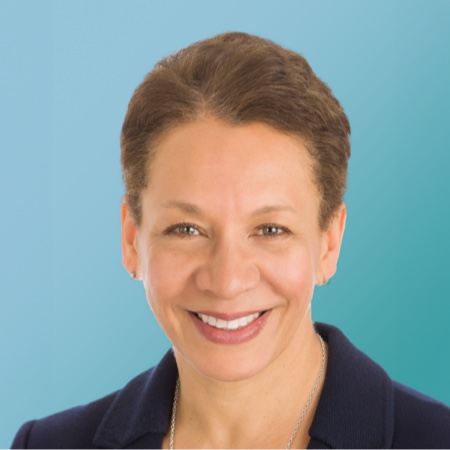Getting on board

Patricia McLeod’s (EMBA’11) board awakening came nearly 15 years ago at a moment that was, on paper, pretty awkward. She had a demanding day job as an associate general counsel and compliance officer. She was finishing her Executive MBA at Smith. She had young children to wrangle, a new house under construction and a raft of volunteer commitments. Her daily to-do list would make Taylor Swift seem like a slacker. Why on earth would she add a part-time gig — an unpaid one, at that — to the mix?
Yet when McLeod saw an ad soliciting applications for a volunteer board director at the non-profit Calgary Economic Development, her mind lit up. The board was hoping to fill the role with someone younger; she was in her early 40s. They were looking for someone with energy experience; she worked at a power company. They wanted legal expertise; she had a decade and a half of practice. More than that, the opportunity promised the challenge that her insatiably curious brain craved. “It was that chance I’d been looking for to apply the concepts that I was learning and experiences that I was having to a context different from law,” she reflects. “So I thought, ‘OK, I’ll throw my hat in.’ ” She consulted her mentors, prepared a detailed application, practised (and nailed) the interviews and — much to her delight — was offered the role.
She quickly found board work more than made up for the sleep and TV sacrificed to fit it in her schedule. “For the first time, I was using my whole brain, which can be both detail-oriented and big-picture,” McLeod says. “It made me realize I wanted to be at the table where people make and test deals, where they strategize, where they push buttons.”
The feeling was addictive. In fact, over the next few years, McLeod tapered her legal work and replaced it with board service — some volunteer roles, but also, increasingly, paid positions. In 2017, a year after earning her first corporate board chair appointment, she decided to focus full-time on board work. To date, she’s served on more than two dozen; she just accepted her eighth chair position. “I just love it,” she enthuses.
Board service has some clear benefits. It can round out your resumé, bolster your professional network, up your likelihood of promotion, and — if you land a spot on a corporate board — pay handsomely. Because the board oversees the overall direction of the organization, it offers opportunities to engage in wide-lens problem-solving that can be hard to find in the weeds of a day job; all while often contributing to causes and efforts you really care about.
Yet, the process of securing a meaningful board gig can seem vague and confusing. So we spoke to accomplished Smith alumni with a rich range of board experiences to demystify the process.
Tally your experiences
One quandary facing would-be directors is how to start. Not many boards — even small, volunteer ones — will appoint a director with no experience. That can place newbies in an awkward chicken-or-egg position.
But the experience many boards want can come from different places, says McLeod. While you’re unlikely to land a high-profile corporate directorship without having done the job elsewhere, non-profits, industry associations and community groups are often open to considering your passion and potential — as long as you show proof of your ability to work well with others. “Look for any situation where you’ve sat at a table with groups of people with different perspectives to try and get consensus for a decision or execute on a project,” McLeod advises. Think of that time you volunteered to plan an industry association conference or that cross-functional project team you helped lead at your work. These experiences demonstrate an ability to collaborate towards a common goal, McLeod says, and are a great way to show your skills, gain references and build confidence.
“Many veteran directors recommend creating a “board resumé” that is specifically devoted to selling why you’d be a strong director”
It’s a good idea to not only take inventory of these experiences but also to learn how to communicate them. Many veteran directors recommend creating a “board resumé” specifically devoted to selling why you’d be a strong director. The better you get at communicating your suitability, the more successful you’ll be.
Hone your skills
There are some things you don’t need to know to be an effective director. For instance, you don’t need to be an expert in the finer points of business law or governance processes (at least, not at first). Nor do you need to be well-versed in the industry or community the organization serves. “If you’re in a position of being considered for a director role, the assumption is that you’re going to lean in and come up that learning curve,” says
Hazel Claxton, BCom’83, a retired executive who now sits on five corporate and non-profit boards. It’s important, she says, to recognize where your skills and experiences match up with what the organization needs most — that “you can connect the dots and bring relevant constructive insights from your experience in other sectors.”
What do you need? Ideally, your financial literacy is strong enough to understand the levers most relevant to the economics of an organization and assess the integrity of financial reporting. Curiosity and critical thinking are also crucial. You must be able to ask tough questions and respond with conviction when you don’t get satisfactory answers. And you need excellent time-management skills: You’ll be tasked with reviewing and interpreting high volumes of information about all manner of organizational imperatives. That can’t be done by scanning a few emails before a meeting.
“You can’t just be passive and expect to be spoon-fed,” explains Claxton. It is your duty, she says, to seek out information, to take real time to assess the issues at play and to consider how it all adds up.
Put your hand up
You might dream of a situation in which a board chair taps you on the shoulder and implores you to please accept a seat. Or one in which your application simply dazzles the recruitment committee. Those things do happen. But it’s more likely that you’ll need to hustle to make it known you’re willing to serve. Especially if you haven’t done much of it.
“You kind of have to be your own headhunter,” says JP Gladu, EMBA’12, founder and principal of the strategic consultancy Mokwateh. Gladu currently sits on four boards, including that of the non-profit Institute of Corporate Directors, which educates and represents Canadian directors and boards. Having been through the board recruiting process many times, on both sides of the table, he’s seen how fortune favours the bold.
Be prepared to do a lot of old-fashioned smithqueens.com/magazine 31 networking. Let past and present colleagues, mentors and industry connections know you’re open to board opportunities. (A well-crafted LinkedIn post can do wonders.) Research the executive search firms who’ve worked with boards you’d like to join and reach out to recruiters to get on their radars (most keep “evergreen” lists of good candidates). And show up to relevant industry, organizational and charitable events. “It really is about relationships, relationships, relationships,” Gladu explains. “You never know who in what circle has a connection, and who can make an introduction. Showing interest and showing face is very important.”
Find the right fit
New directors are often so eager for experience they’ll go all-in on the first opportunity. It’s worth taking a beat to think about how you want to serve, says Bettina Pierre-Gilles, EMBA’14, an accomplished entrepreneur and finance executive with extensive experience on both corporate and non-profit boards. “You need to treat it like you would a regular career opportunity. You don’t just take the first job that’s offered to you because you’re desperate,” she says. “You need to make sure that there is a fit.”
What makes a board role a fit depends on how your objectives mesh with what the organization needs, says Pierre-Gilles. Will the position allow you to apply your skills and knowledge? Will it teach you things you want to learn? Will it propel you to another board? Will it allow you to contribute to something you really care about? If you can’t answer “yes” to at least one of these questions, you’re probably better off holding out for something different. “You have to put in the effort to know what it is that you want, and what value you are willing to add,” Pierre-Gilles advises. “Once you know that, focus your energy on boards who are looking for it.”
Understand the risks
A final factor to consider: Board service is not just a serious commitment. If you’re not careful, it can be a potential risk.
“When you’re interviewing for a board position, remember: The organization is evaluating you, but you also need to evaluate it,” explains Bertrand Malsch, the PWC/Tom O’Neill Professor of Accounting at Smith, who researches governance in professional service firms. “Because when you take the position, you become legally responsible for a lot of the things that can go wrong in the organization.”
In Canada, corporate board directors hold both duty of care and fiduciary duty of loyalty. That means you’re legally on the hook to put the interests of the company first and to keep on top of what’s going on. (You really can’t skip the reading — and there is a lot of reading.) It’s less intense for non-profit directors, but even then, a bit of prudence will go a long way to minimize risk.
Malsch recommends you review the organization’s financial statements to look for anything confusing or potentially fishy. In the interview process, ask about current disputes or lawsuits that might pose problems down the line. Explain that you understand that this may be confidential information, but that you cannot responsibly proceed without doing your due diligence. (If you get pushback, consider it a red flag.) Also, take note of the dynamic between other board members. Is there excessive conflict or groupthink? Either can be problems. “People are so eager to become board members because it carries so much symbolic capital and recognition,” Malsch says. “But that should never cause you to underestimate the risks. They are material. And your reputation depends on it.”
Indeed, with great power comes great responsibility, as any Spider-Man fan will tell you. But when you get it right — when you contribute to a board that challenges an organization to be the best version of itself and challenges you to be the best version of yourself — it’s worth every bit of effort expended to get there. “When you get that,” reports Gladu, “it’s wonderful.”
We live to serve
Our star panel of Smith alumni hold positions and serve on a variety of boards

Hazel Claxton, BCom’83
Retired human resources executive, formerly at PwC and Morneau Shepell
First Board: Shaw Festival (director)
Current Boards: Allied Properties REIT (trustee), Bank of Montreal (director), Telus (director), Unity Health Toronto (director), University Pension Plan Ontario (trustee)
“Serving on a board is a privilege. If you’re going to occupy one of the rare seats at the table, know that it comes with a lot of responsibility. It’s not about cachet. It’s about learning. It’s about carrying out your responsibilities in the best way possible. It’s about stepping up.”

Patricia McLeod, EMBA’11
General counsel and compliance officer turned full-time board chair and director
First Board: Calgary Economic Development (director, then vice-chair)
Current Boards: City of Calgary Green Line Board (director), FutEra Power Corp. (chair), MINDD Bra Company (director), Pieridae Energy Ltd. (chair), Quantum Algorithms Institute (incoming chair)
“Board work can involve some fairly routine duties, like approving financials, or become really intense, like having to handle a crisis or a black swan event. But sometimes you have the extraordinary moment of getting to say, ‘I think we just made a strategic decision that will support the long-term sustainability of this organization.’ That’s the sweet spot on the tennis racquet of governance.”

JP Gladu, EMBA’12
Founder and principal, Mokwateh
First Board: Lake Nipigon Forest Management Inc. (director)
Current Boards: Broden Mining (director), Canada’s Forest Trust (chair), Institute of Corporate Directors (director), Suncor (director)
“When you spend time with your fellow directors, who have so much to offer, and share your learnings with them, it creates such great diversity of brain power and strategy power. You’re constantly learning, and I find you bring that experience into your own life — professionally and personally.”

Bettina Pierre- Gilles, EMBA’14
Founder, president and CEO, Luxeum Renewables Group; president and CEO, Pierre- Gilles & Associates Professional Corporation
First Board: Poplar Point Energy Ltd. (director and treasurer)
Current Boards: Bow Valley College (governor), Piikani Investment Corporation (chair), Queen’s University (trustee), Renewable Energy Transition Inc. (audit committee chair)
“Being on a board is not simply about deploying your expertise and knowledge and experience. My gosh, you learn so much from your fellow board members. You learn so much about the inner workings of organizations. It forces you to think in a holistic way.”
